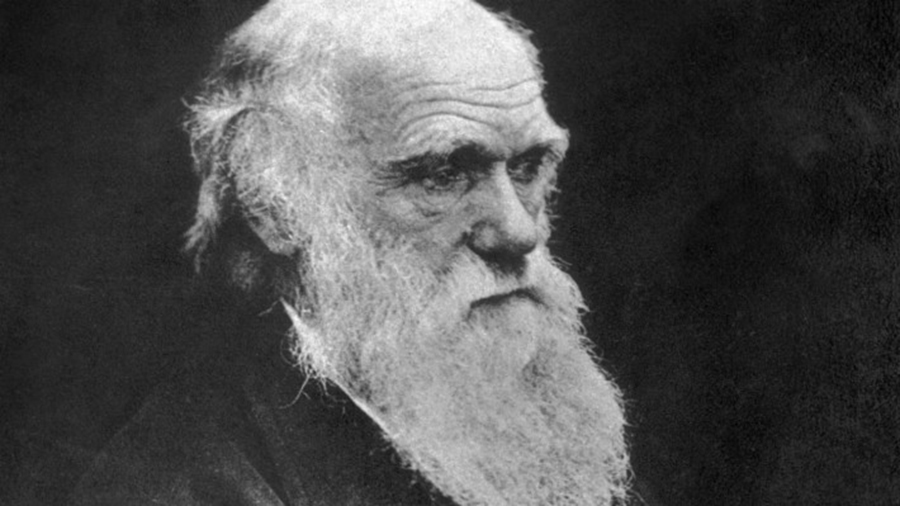Ideas That Changed The World: EVOLUTION

How Charles Darwin revolutionised our understanding of 'creation'.
“The central idea of biological evolution is that all life on Earth shares a common ancestor,” according to Understanding Evolution, a joint project of the University of California Museum of Paleontology and the US National Center for Science Education.
From this spark of life developed the millions of different species that make up the Earth’s natural world. At its heart, “evolution means that we’re all distant cousins: humans and oak trees, hummingbirds and whales”, the information site adds.
The process is made up of tiny genetic changes over generations - affecting the shape of a bird’s beak, for instance, or the colour of a flower - as an adaptation to environmental factors.
If a living thing possesses a particular genetic quirk that gives it an advantage in its environment, it is more likely to successfully reproduce - a process known as “natural selection”.
Over successive generations, the once-rare feature becomes standard, and given enough time, this process results in the formation of separate species - at last count, 8.7 million of them.
How did it develop?
In 1831, a young British naturalist called Charles Darwin joined the crew of the HMS Beagle to accompany the ship on a five-year voyage around the coastline of South America, returning via New Zealand, Australia and Tahiti.
“Over the course of the trip, Darwin collected a variety of natural specimens, including birds, plants and fossils,” says Biography. Based on his observations, he “began to develop a revolutionary theory about the origin of living beings that was contrary to the popular view of other naturalists at the time”, the site continues.
Aware that his ideas were deeply transgressive, Darwin waited until 1859 before he finally published a comprehensive overview of his findings, entitled On The Origin of Species.
Although elements of what we now know as evolution had been discussed in the scientific community before Darwin’s groundbreaking work, he was the first to posit a complete theory accounting for the development of the natural world.
The book quickly became a bestseller far beyond academic circles, generating a heated public debate about his radical vision and its implications for humanity, science and religion.
In 1871, Darwin published a second tome, The Descent of Man, which focused on how the principles of evolution and natural selection shaped the development of humankind.
How did his theories change the world?
Darwin presciently understood the impact his work would have on our understanding of the world. “When the views entertained in this volume on the origin of species, or when analogous views are generally admitted, we can dimly foresee that there will be a considerable revolution in natural history,” he wrote in the concluding chapter of On The Origin of Species.
Indeed, not only is the book “a foundational text of the biological sciences”, the ideas within it “influenced all sorts of other disciplines, including anthropology, religious studies and the Classics”, say history professor Julia Kindt and entomologist Tanya Letty, both of the University of Sydney, in an article on The Conversation.
Darwin’s work also had a massive cultural impact, setting up a generations-long battle between mainstream science and religious conservatism
By far the most controversial aspect of evolution theory was its apparent contradiction of the biblical account of creation, in which God created animals and people, intentionally and in their complete form.
The image of monkeys evolving into men - a crude bastardisation of Dawin’s actual theory, which posited that humans and apes shared a common distant ancestor - exposed him to condemnation and ridicule.
The most infamous clash came in 1925, when Tennessee legislators passed the Butler Act, which forbade the teaching of the theory of evolution in the US state’s public schools.
The American Civil Liberties Union immediately offered to fund the legal expenses of any teacher willing to defy the Act, and soon found a volunteer in John T. Scopes.
Although Scopes was found guilty and fined $100, the verdict proved a pyrrhic victory for the anti-evolution movement.
A clear consensus emerged in press coverage of the trial that defence attorney Clarence Darrow had outperformed his creationist opponents. In addition, the case for the defence “succeeded in publicising scientific evidence for evolution”, says the US Public Broadcasting Service (PBS), and the Scopes trial is ultimately credited with shifting public opinion in favour of evolution.
Nonetheless, nearly 100 years on, the teaching of evolution in schools continues to be a sensitive subject, particularly in parts of the US.
The impact and the controversy alike show that evolution has never merely been an academic issue, writes Dame Gillian Beer, who edited the Oxford World’s Classics edition of On The Origin of Species.
Rather, “readers have taken away from it quite different, and often contradictory, stories about the rise or the fall of mankind, about the ‘survival of the fittest’ or the need for collaboration, about diversity and selection”, she says.
“That ability to generate broad understandings of life underpins the work’s revolutionary success,” Beer concludes.
Source: www.theweek.co.uk








